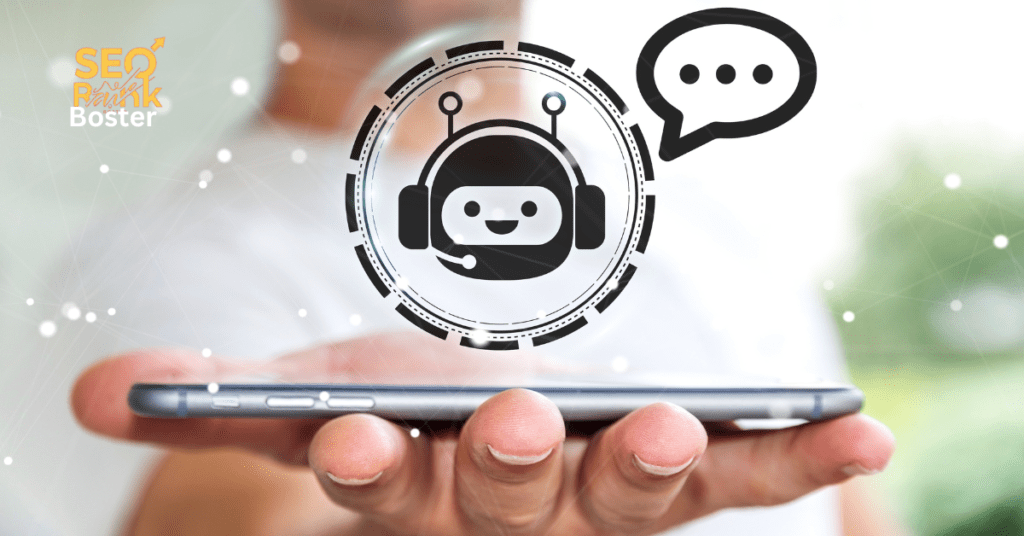Table of Contents
ToggleArtificial Intelligence (AI) is not just a buzzword; it’s the cornerstone of transformative advancements in industries like customer service and healthcare. AI chatbots and predictive analytics are two of the most impactful applications, reshaping how businesses interact with customers and improving patient outcomes. Let’s dive deeper into these revolutionary technologies.
AI Chatbots: The Future of Customer Service
1. Always-On Availability
AI chatbots ensure round-the-clock availability, allowing businesses to cater to customer inquiries without delays. Unlike human agents, chatbots handle multiple queries simultaneously, reducing wait times and enhancing user satisfaction.
2. Personalized Interactions
Modern AI chatbots leverage natural language processing (NLP) and machine learning to deliver personalized responses. By analyzing customer history and preferences, these bots offer tailored solutions that boost customer loyalty and engagement.
3. Cost Efficiency
Deploying chatbots drastically reduces operational costs. Businesses save on hiring and training while maintaining high-quality customer service. This scalability makes chatbots indispensable for startups and large enterprises alike.
4. Proactive Assistance
Advanced AI systems can predict customer needs and provide proactive recommendations. For instance, chatbots can notify users about service renewals, discounts, or product updates, driving upselling and cross-selling opportunities.
Predictive Analytics: Transforming Healthcare
1. Early Disease Detection
Predictive analytics employs AI algorithms to analyze patient data, identifying patterns that indicate early signs of diseases such as diabetes, cancer, or heart conditions. Early detection significantly improves treatment outcomes.
2. Optimized Treatment Plans
By analyzing large datasets, predictive models assist healthcare providers in creating personalized treatment plans. For example, AI can suggest the most effective medication based on a patient’s genetic makeup and lifestyle.
3. Reduced Readmissions
Hospitals leverage predictive analytics to identify patients at high risk of readmission. By proactively addressing potential complications, healthcare providers can reduce readmission rates and improve patient care.
4. Streamlined Operations
Predictive analytics enhances hospital efficiency by forecasting patient admissions, optimizing staff schedules, and managing inventory for essential supplies.
Synergy Between AI Chatbots and Predictive Analytics
When AI chatbots and predictive analytics work in tandem, the results are revolutionary. In healthcare, chatbots can collect real-time patient data, which predictive models analyze to provide actionable insights. For example, a chatbot might identify symptoms through patient interactions and trigger an alert for further medical evaluation.
In customer service, predictive analytics enhances chatbot functionality by enabling bots to anticipate customer needs based on historical data, further streamlining user experiences.
Challenges and Ethical Considerations
While AI offers immense benefits, challenges like data privacy, algorithmic bias, and ethical concerns cannot be ignored. Businesses and healthcare providers must ensure compliance with regulations like GDPR and HIPAA while fostering transparency and accountability.
1. Data Privacy
Protecting user data is paramount. AI systems must employ encryption and secure storage practices to build trust and ensure privacy.
2. Algorithmic Bias
AI models must be trained on diverse datasets to avoid biases that could lead to unfair treatment or misdiagnosis.
FAQs
1. How do AI chatbots improve customer service?
AI chatbots improve customer service by providing 24/7 availability, personalized responses, and faster query resolution. They also reduce operational costs and enhance user experiences with proactive assistance.
2. What are the benefits of predictive analytics in healthcare?
Predictive analytics benefits healthcare by enabling early disease detection, optimizing treatment plans, reducing readmissions, and streamlining hospital operations. It helps improve patient outcomes and overall efficiency.
3. Can AI chatbots handle complex customer queries?
Yes, modern AI chatbots are designed with advanced NLP and machine learning algorithms, enabling them to handle complex queries and escalate cases to human agents when needed.
4. How does predictive analytics reduce hospital readmissions?
Predictive analytics identifies high-risk patients by analyzing their health data and patterns. This allows healthcare providers to intervene proactively and prevent complications that could lead to readmissions.
5. Are AI technologies secure for handling sensitive data?
Yes, but only if implemented correctly. Businesses and healthcare providers must adhere to strict data privacy regulations and use robust encryption to protect sensitive information.
Conclusion: AI’s Transformative Potential
From revolutionizing customer service with AI chatbots to enhancing healthcare with predictive analytics, AI’s potential is boundless. These technologies not only improve efficiency but also deliver personalized and proactive experiences that redefine industry standards.
As we continue to innovate, it’s crucial to address challenges ethically and responsibly, ensuring that AI’s benefits are accessible to all. Businesses and healthcare providers that embrace these advancements today will lead the industries of tomorrow.

